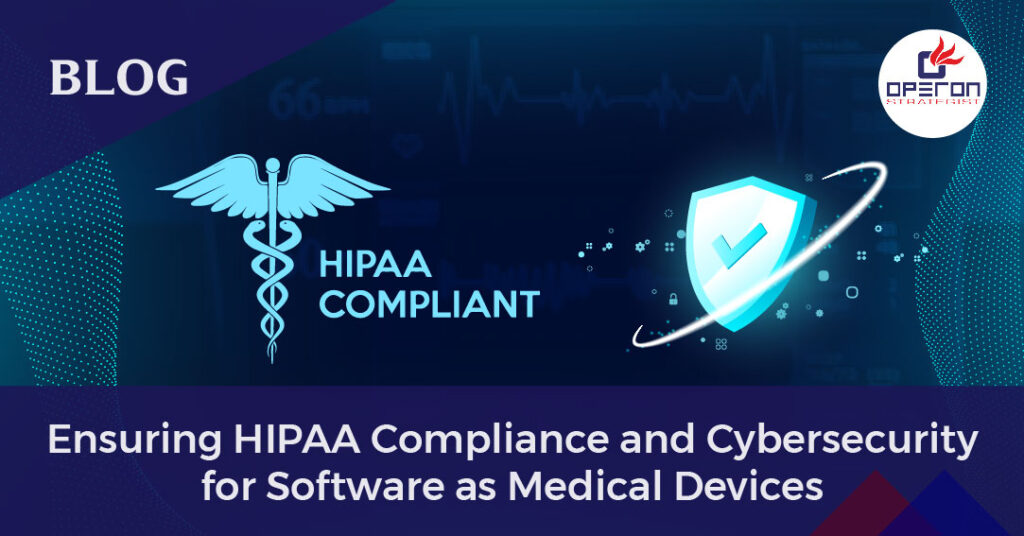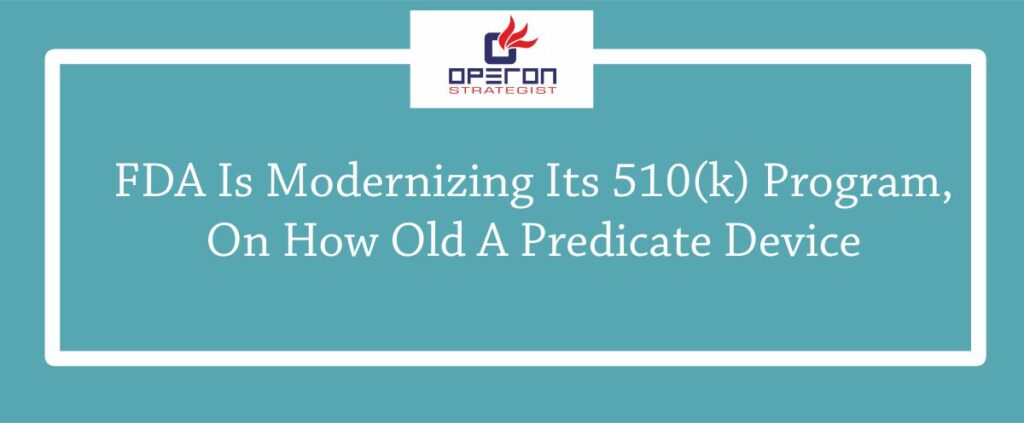Overview of HIPAA Compliance and Cybersecurity
In the medical device sector, discussions on Software as Medical Devices (SaMD) and cybersecurity are gaining momentum as the FDA introduces regulatory guidelines for digital platforms. Manufacturers are exploring novel ways to utilize software for gathering patient data, emphasizing the importance of safeguarding patient data privacy and mitigating potential data breaches. The Health Insurance Portability and Accountability Act (HIPAA) has furnished the healthcare industry with a comprehensive set of standards and frameworks aimed at enhancing data protection measures.
Get expert consulting services for the US FDA 510(k) approvals.
Looking for a Medical Device Regulatory Consultant?
Let’s have a word about your next project
What is HIPAA?
HIPAA compliance refers to adhering to the rules and regulations outlined in the Health Insurance Portability and Accountability Act (HIPAA), enacted in 1996 in the United States. It encompasses the Privacy Rule, which governs the use and disclosure of protected health information (PHI), the Security Rule, which sets standards for safeguarding electronic PHI, and the Breach Notification Rule, which requires notifying individuals and authorities in the event of a breach. HIPAA compliance also involves enforcing penalties for violations and establishing business associate agreements to ensure third-party compliance. Compliance is crucial for protecting patient privacy, maintaining data security, and avoiding penalties and legal repercussions for non-compliance.
In the medical device industry, verification and validation testing are standard practices to ensure products meet design and user requirements. Similarly, HIPAA compliance and cybersecurity measures should be integrated into software design requirements. Manufacturers are obliged to conduct verification and validation testing to ensure software compliance with HIPAA standards. Operon Strategist, a leading medical device regulatory consulting company, specializes in assisting manufacturers with navigating complex regulatory requirements, including HIPAA compliance and cybersecurity measures. Their expertise in verification and validation testing ensures that software-based medical devices meet regulatory standards and mitigate potential risks effectively.
Know more about IEC 62304: Medical Device Software Compliance
Importance of HIPAA Compliance and Cybersecurity
HIPAA was enacted to protect patients’ sensitive health information and ensure its confidentiality, integrity, and availability. For SaMD developers, adhering to HIPAA regulations is not only a legal requirement but also a critical component of maintaining trust with patients and healthcare providers. Failure to comply with HIPAA can result in severe penalties, reputation damage, and loss of business.
Moreover, cybersecurity is fundamental for SaMD as these applications often handle vast amounts of electronically protected health information (ePHI). With cyber threats evolving and becoming more sophisticated, SaMD developers must implement robust security measures to safeguard patient data from unauthorized access, data breaches, and cyberattacks. A breach in cybersecurity not only compromises patient privacy but also poses risks to patient safety and can disrupt healthcare operations.
Understanding HIPAA Requirements for SaMD
Developers of SaMD must ensure compliance with HIPAA’s Privacy, Security, and Breach Notification Rules. This entails implementing administrative, physical, and technical safeguards to protect ePHI from unauthorized access, use, or disclosure. Key HIPAA requirements for SaMD include conducting regular risk assessments, implementing access controls, encrypting data, maintaining audit trails, and establishing policies and procedures for data security and privacy.
Implementing Cybersecurity Measures for SaMD
To bolster cybersecurity for SaMD, developers should adopt a proactive approach that incorporates robust security practices throughout the software development lifecycle. This includes:
- Risk Assessment and Management: Conduct thorough risk assessments to identify potential vulnerabilities and risks to ePHI and implement risk mitigation strategies to address these vulnerabilities effectively.
- Access Controls: Implementing stringent access controls to ensure that only authorized users can access ePHI. This includes role-based access control, strong authentication mechanisms, and user activity monitoring.
- Data Encryption: Encrypting ePHI both at rest and in transit to protect it from unauthorized access or interception. Encryption helps to render sensitive data unreadable and unusable if intercepted by unauthorized parties.
- Secure Software Development Practices: Following secure software development practices, such as incorporating security into the design, conducting regular code reviews and security testing, and addressing vulnerabilities promptly.
- Incident Response and Management: Establishing procedures for detecting, responding to, and mitigating security incidents promptly. This includes having a designated incident response team, developing incident response plans, and conducting regular drills and exercises.
In conclusion, ensuring HIPAA compliance and implementing robust cybersecurity measures are essential for SaMD developers to protect patient data and maintain regulatory compliance. By understanding and adhering to HIPAA requirements, incorporating cybersecurity best practices, and prioritizing data security and privacy throughout the software development lifecycle, SaMD developers can build trust with patients and healthcare providers while safeguarding patient information from cyber threats. Ultimately, investing in HIPAA compliance and cybersecurity is not only a legal obligation but also a commitment to patient safety and the integrity of healthcare delivery in the digital age.
Need Further Guidance on HIPAA Compliance and Cybersecurity for Your Medical Device? Click Here for an Expert’s Consultation!
Operon’s Role in HIPAA Compliance and Cybersecurity for Software as Medical Device
Operon Strategist is a leading regulatory consulting company specializing in ensuring HIPAA compliance and cybersecurity for Software such as Medical Devices (SaMD). Our expert team collaborates closely with manufacturers to integrate HIPAA standards and cybersecurity protocols into SaMD design, development, and testing. We guide verification and validation testing to ensure compliance, safeguard patient data, and mitigate cybersecurity risks effectively. With Operon’s support, manufacturers can confidently navigate regulations and deliver safe, secure SaMD to the market.




